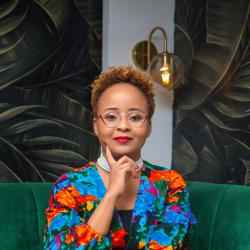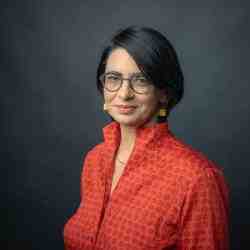Introduction
Irene is challenging the traditional educational system in Uganda by creating a new learning environment where young people are encouraged to think and act like entrepreneurs. Through her youth-led and community supported clubs, Ugandan youth get the opportunities to be creative, demonstrate initiative, and approach learning in new ways.
The New Idea
Like many nations, the fate of Uganda lies in its youngest generations. Irene believes that if Uganda is to thrive, it must reform its education system and begin training the entrepreneurs of the future. In sharp contrast to the current rote-learning style instituted by colonial Britain, Irene has developed youth clubs that are action-oriented and student-centered, encouraging children and youth to take initiative, pursue their own ideas and dreams, use their creativity, and develop the kinds of life skills that cannot be taught in the classroom.
Irene has created a series of “Young Entrepreneurs” clubs in secondary schools and “Aflatoon” clubs in primary schools to provide a new space for learning, where children and youth can discover and develop their talents, and even create and run small business projects. Unlike the traditional classroom, where creativity and individual thinking are often stifled, Irene’s clubs are driven largely by the motivation of its young members. In this environment, there are no test scores and no standardized curriculum. Rather than being groomed for specific roles in a racially and class-divided society, youth are groomed to seize opportunities, be confident, and find their own path as they mature into competitive and productive individuals in society.
Already, Irene and her clubs are having a significant effect. A large community of diverse stakeholders—from students and parents to educators and government officials—has taken notice of her approach and has begun integrating some of her practices into the school system. Teachers are being trained to create a less regimented classroom, and volunteers from the business and citizen sectors participate in the management and growth of the clubs. They recognize that a long-term change in Uganda must begin in the schools and in the minds of Ugandan students.
The Problem
After Uganda gained independence in 1962, it inherited the British colonial education system designed to meet British colonial needs. This system was aimed to produce young civil servants for the colonial government and built a tiered system to perpetuate class distinctions. British and other Western graduates were channeled toward high-paying civil servant positions while Ugandan and other African citizens were clustered into lower-paying positions. In addition, tribal divisions within the labor market also became firmly entrenched. Tribes from the fertile center of the country, for example, were groomed for professional positions while those from the north largely filled jobs within the armed forces.
To this day, the focus of the Ugandan education system is based on passing examinations, meeting state requirements, and obtaining jobs within a class structure along racial and tribal lines. In 1986, the Ugandan government committed to rehabilitation of the formal education sector and has instituted educational reviews that are contained in the White Paper on Education Policy (1992), the Universal Primary Education (UPE) policy of 1997, and the Education Strategic Investment Plan (1998-2003); however, significant improvements and reforms remain elusive.
Social, economic, and political mayhem from the late 1960s to 1986 further exacerbated problems in the education system. A massive brain drain occurred as the elite left the country, and the public education system suffered a virtual collapse.
In the government White Paper (1992) on education, focus on curriculum for vocation is intended to instill entrepreneurial skills in youth and adults and is considered a key to education reform. However, current vocation training is geared towards part-time jobs, not towards initiative-taking and entrepreneurship. Teachers are seen as job failures, while the “post” system of employment does not exist anymore, leading to extremely high unemployment. Children typically choose professions based on their parents, with career guidance; they see entrepreneurship in the business sense only, and business as a last resort in life. Government efforts to introduce entrepreneurship are further hampered by its introduction as an academic subject, yet entrepreneurship is a unique set of behaviors possessed by individuals characterized by life skills, creativity, goal-setting, and the ultimate ability to transform threats into opportunities.
Although UPE has transformed the face of education, it has also presented challenges to the sector in general. Unrealistically high enrollment targets have strained the existing infrastructure and facilities. For example, although more pupils are enrolled, this does not correspond to higher pupil-to-teacher ratios, nor does it correspond to improved teacher training opportunities. This is further compounded by the lack of relevant and practical skills in the current curriculum at all levels. At the national level, this is evidenced by the current influx of foreign labor in the technical and management fields and the apparent limited ability of Ugandan university graduates and professionals to gain employment and work under minimum supervision.
Currently, the supply of skilled labor far exceeds the demand for workers. Yet often those who get jobs under-perform: lacking initiative, creativity, discipline, independent thinking, and self-management skills.
The Strategy
Irene realizes that to change attitudes, she must catch young people at an early age and continuously engage them in creative problem-solving. She has created a system of clubs in primary and secondary schools in which young people get the chance to generate ideas, discuss them with mentors, and draw plans to follow up and implement their ideas. She brings together various stakeholders—parents, associates (teachers and other professionals), the Ministry of Education, and school administration—to create a conducive environment for children to learn. She educates the entire support system and challenges them to change their attitude towards learning.
Based on the slogan, “Find out what you can do best, develop it and give it back to the world,” Irene has created “Young Entrepreneurs Clubs” in 8 secondary and 19 “Aflatoon Clubs” in primary schools, and has introduced the idea in another 20 schools. In the clubs, young people participate in the development of their own curriculum, planning of a business idea/project, and starting up and marketing of their business idea to prospective sponsors. They also participate in planning and conducting annual conferences and competitions where clubs from different schools come together to evaluate and market their ideas, and are awarded for their performance. The Aflatoon Clubs in primary schools promote a savings and money management culture and the understanding of child rights and responsibilities.
The young people go through a skills scan identification exercise and are able to choose their projects or business according to their passions, beliefs, values and knowledge. The learners are encouraged to think creatively, talk, ask questions, develop solutions and come up with specific objectives.
To support the clubs, each member contributes a membership fee worth 5,000 Uganda shillings (US$2.60) annually. With the profits from Enterprise Development Limited (EDL), an organization she founded, Irene supports The Private Education Development Network (PEDN), which coordinates club activities.
Irene is aware that in order to sustain the clubs she needs to create a viable environment for learning. She has identified a variety of support systems to help create this environment. She is working with the primary and secondary school systems, associates, the Ministry of Education, nongovernment organizations, and the Head Teachers’ Association. She ensures that all these support systems get the same introduction to entrepreneurial learning as the youth in the clubs and therefore participate in club activities as facilitators and role models. By aligning the concept with the formal education system in Uganda—weaving into the primary and secondary schools a “curriculum of entrepreneurship”—she hopes to encourage students to question, think creatively, and experiment with taking initiative.
By catching children early on and enlisting teachers as champions of entrepreneurship, she hopes to realize a transformation in the spirit of Ugandans.
Logical allies are an invaluable part of support for entrepreneurial learning. She works with the Ministry of Education, the Curriculum Development Center, Local Government education departments, Members of Parliament as well as other local and international civil society and professional associations such as the Head Teachers’ Association, Young Entrepreneurs—UK, and Teaching Kids Business—Canada. The State Minister for Higher Education presided over the launch and expressed great enthusiasm in entrepreneurial learning and supporting government efforts to create a more entrepreneurial society. The minister committed to working with PEDN to entrench entrepreneurship in formal primary and secondary curricula and to spread the idea of GEN-X-21 Clubs nationwide. With these allies, she has begun to influence education policy and this unique curriculum nationwide.
Irene believes that self-evaluation is critical, and the best way to approach her work is to start with a few schools, putting emphasis on delivering high-quality training programs to all stakeholders involved. She hopes to spread the effort to other schools all over the country in a few years.
The Person
Irene, the youngest of five children, grew up under difficult circumstances; her entire family fled Uganda during the repressive and violent Amin Dada years. She stayed behind and continued the family business.
Later, she began her professional career as a secondary school teacher in Kampala. She taught economics, commerce, and geography before relocating to the United Kingdom for further studies. While in the U.K., Irene cleaned hotel rooms, and sorted mail, allowing her enough money to pursue an education in business administration and management. Returning home, she started a small business but noticed that her employees lacked initiative and could not see creative solutions.
Irene decided to work with several women enterprise groups as a trainer. During her trainings she noticed that it was not easy to change adults’ attitudes in a very short period of time. She realized that few Ugandans with formal degrees and only some with advanced degrees, demonstrate initiative, independent thought, creativity and awareness of the challenges and opportunities to develop their nation.
What was needed was an opportunity to introduce entrepreneurial learning so that young people learned of the possibilities open to them and were encouraged, early on, to demonstrate initiative and pursue life and career choices with energy, determination, and creativity.
Irene is married with two sons and a daughter, and she lives in Kampala. Irene sits on several institutional boards and this has helped her command respect in society.




